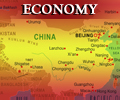Recovery and Reform Bolster China’s Bank Operating Environment

An improving economic outlook, coupled with ongoing regulatory reforms designed to curb systemic risks, will reduce downside risks to banks’ Viability Ratings (VRs) in 2021, says Fitch Ratings. Furthermore, progress on financial reform and China’s economic resilience, demonstrated during the pandemic shock, are developments that Fitch views as positive for China’s banking-sector operating environment (OE) score. Should this score be raised to investment-grade level from the current ‘bb+/stable’, it could create some upward rating pressure, particularly for larger state banks where the OE score is the same as their VRs.
Fitch expects China’s economy to grow by 8% in 2021, after an expansion of 2.3% in 2020. The improved macroeconomic environment should support fee generation and lending income for banks, even as we expect official asset-quality metrics to deteriorate further, with the roll-off of loan relief measures revealing the full effect of the shock on asset quality.
China’s relatively high degree of macroeconomic stability during the pandemic highlighted its fiscal strengths and the authorities’ capacity to provide support. Even during the height of the shock, the authorities refrained from substantial cuts in interest rates, which limited pressure on net interest margins for Chinese banks relative to global peers.
Regulators have made further progress on financial-sector reforms that we expect to reduce banking-system risks in the longer term. Progress in the establishment of a domestic systemically important bank (D-SIB) framework in December 2020, for example, should strengthen the resilience of China’s major banks through higher capital buffer requirements.
The effectiveness of reforms will be revealed over time, but many recent changes could address factors that have been areas of weakness for China’s bank OE score. This includes governance and data transparency issues, which also weigh on Fitch’s ESG Relevance Scores for most Chinese banks.
The authorities have sought to improve the efficiency of credit allocation by encouraging more bank lending to the private sector and enhancing banks’ risk-pricing capability. This was one of the motivating factors behind the transition to the loan prime rate (LPR) benchmark; the repricing of loans under this reform was largely completed in 2020. It is also reflected in the tightening of macroprudential standards around property and online lending exposures, which aims to reduce system contagion.
In addition, we believe the recognition and resolution of non-performing loans (NPLs) has improved, notably narrowing the gap between reported NPLs and overdue loans. The adoption of IFRS9 reporting standards also helped to strengthen reporting and disclosure, as financial statement users can now easily identify banks with greater discrepancies between their reported NPLs and their stage three loans under IFRS9.
The pandemic crisis significantly increased the ratio of bank credit-to-GDP in 2020, but we expect leverage to stabilise in 2021. High system leverage has weighed on the OE score, but policy support in 2020 did not involve large-scale credit stimulus. Fitch assumes that the authorities will remain committed to containing financial-sector risks and stabilising system leverage, reducing the risk that banking-sector stability could be jeopardised by macro-level policies that prioritise growth over reform in the medium term. This should encourage more sustainable growth in the sector, and ease the build-up of systemic risk.
Our assumption is supported by statements and reports from regulators acknowledging the importance of containing leverage and the vulnerability of many banks to stress scenarios. Official statements during and following the meeting of China’s legislature, the National People’s Congress, in March should provide further clarification around the direction of policies. Nonetheless, there remains a risk that regulatory shifts could undermine the reform efforts made in recent years, as banks remain highly influenced by macro directives.
Source: Fitch Ratings

 Hellenic Shipping News Worldwide Hellenic Shipping News Worldwide, Online Daily Newspaper on Hellenic and International Shipping
Hellenic Shipping News Worldwide Hellenic Shipping News Worldwide, Online Daily Newspaper on Hellenic and International Shipping























 PG-Software
PG-Software